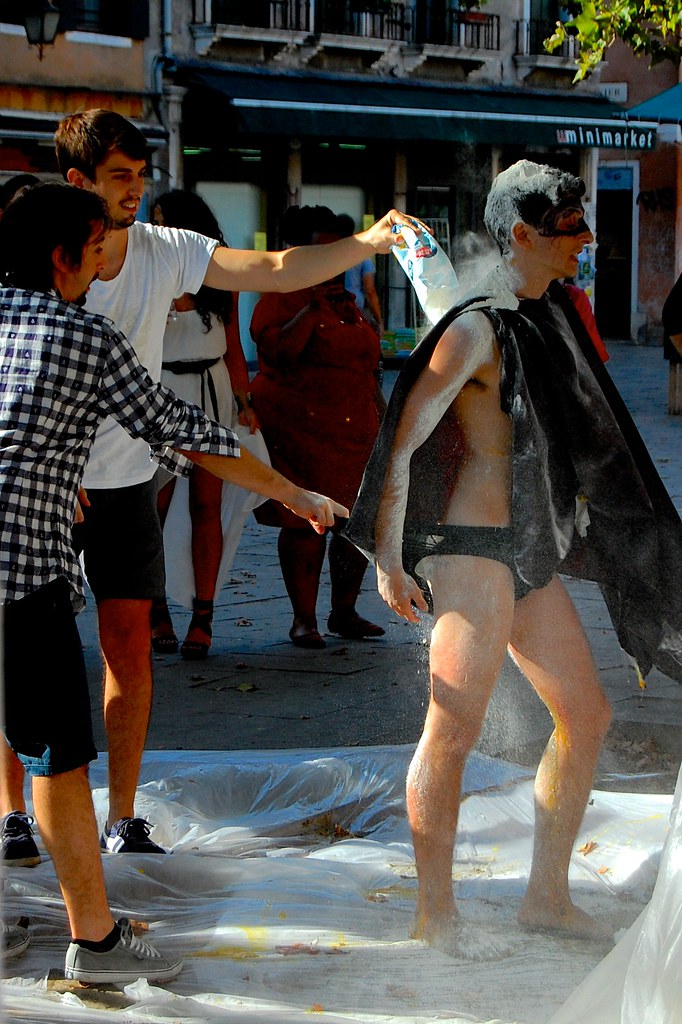 |
| "College hazing-flour" by Pete Morris is licensed under CC BY-NC-SA 2.0 |
A new quarter marks the beginning of on-campus
organizations' recruitment of new members. While getting involved on campus is highly
encouraged, it is also important to be safe. Both student leaders and new
recruits should have an understanding of hazing. After all, hazing violates
both California state law and UCSD policy. For these reasons, it is important to
understand what hazing is, how to be able to identify it when it happens, and
understand its consequences.
According to the California 2006 Matt’s law (Senate Bill
1454), hazing is any method of initiation or pre-initiation into a student
organization or student body which is likely to cause serious bodily injury to
any former, current, or prospective student of any educational institution. Hazing
is punishable under the law, and in cases of death or serious bodily injury,
may be treated as a felony or misdemeanor that can result in heavy fines and
possible jail time. There are three general categories of hazing: “subtle
hazing”, “harassment hazing,” and “violent hazing.” A brief explanation and examples of each
category are found below.
Subtle
hazing consists of behaviors that emphasize a power imbalance of
new members and other members of the group. Examples include:
- Forcing new members into personal servitude
- Socially isolating them
Harassment
hazing consists of behaviors that cause emotional anguish and/or
physical discomfort. Examples include:
- Requiring members to wear embarrassing or humiliating attire
- Forcing them to participate in strenuous activities
Violent
hazing consists of behaviors with the potential to cause physical,
as well as physiological, harm. Examples include:
- Forcing members to consume food, liquid, alcohol, or other substances
- Physically abusing them
- Verbally threatening them
- Forcing them to perform public nudity.
In addition to state law violations, hazing is a violation
of the Student Conduct Code. Students found breaking the student conduct code
can be put on probation, excluded from university activities, made to
participate in community service and educational interventions programs,
suspended, or even dismissed from the University of California system.
Remember, hazing is still hazing even when a member has
agreed to it, or even if non- student leaders perform it. Both an organization
and a student can be found responsible in cases of hazing. If you or your
organization are accused of hazing, it is important for you to make an
appointment with Student Legal Services and have your cased reviewed by an
attorney.
If you or your organization have questions about what may or
may not constitute hazing, you can contact the Office of Student Conduct at
(858-534-6225), or Student Legal Services Center at (858- 534-4374). You can
also report an act of hazing, anonymously if you choose, at hazing@ucsd.edu.
For more detailed information on hazing, you may visit: https://students.ucsd.edu/student-life/involvement/organizations/onestop/hazing.html.